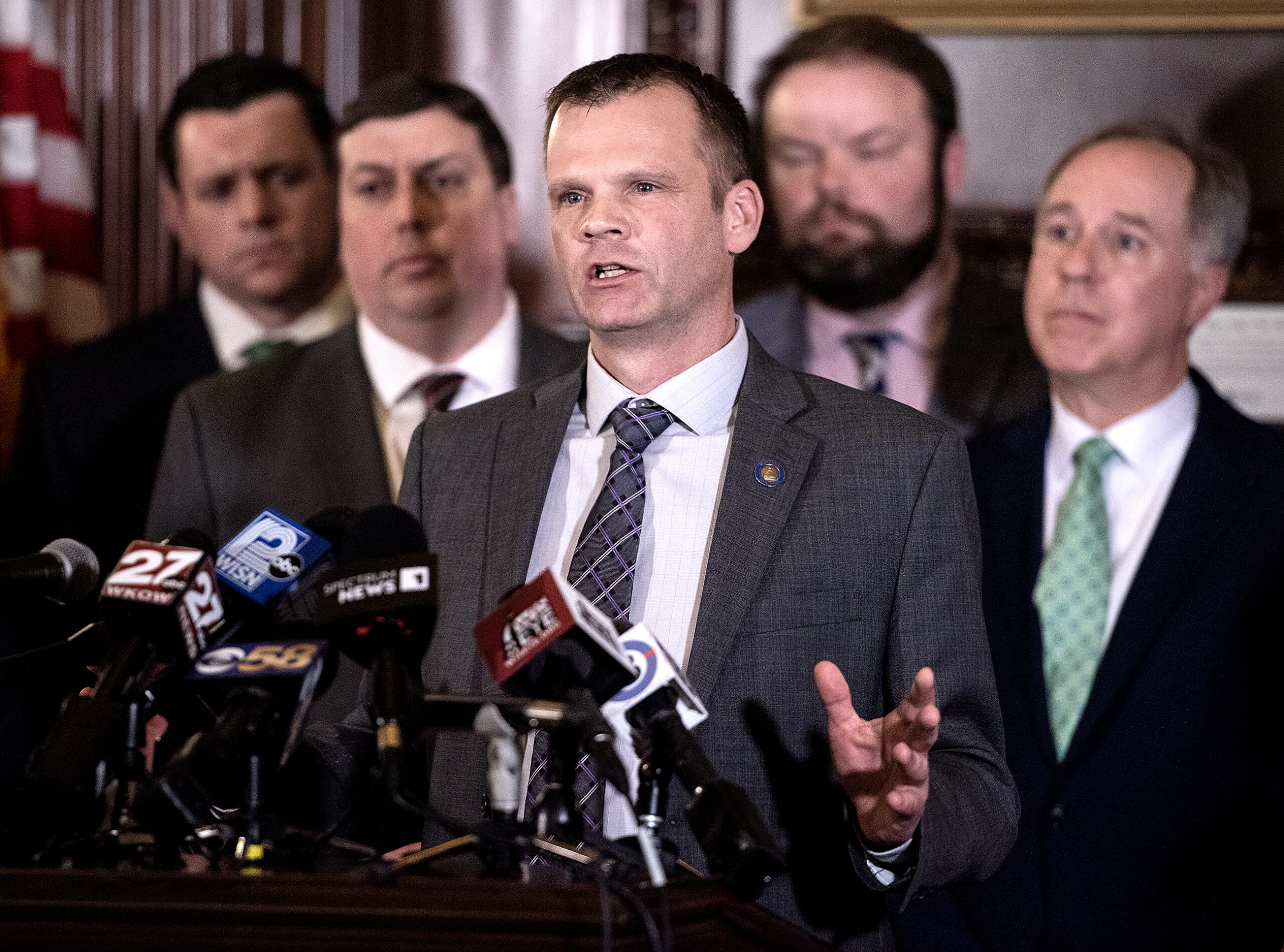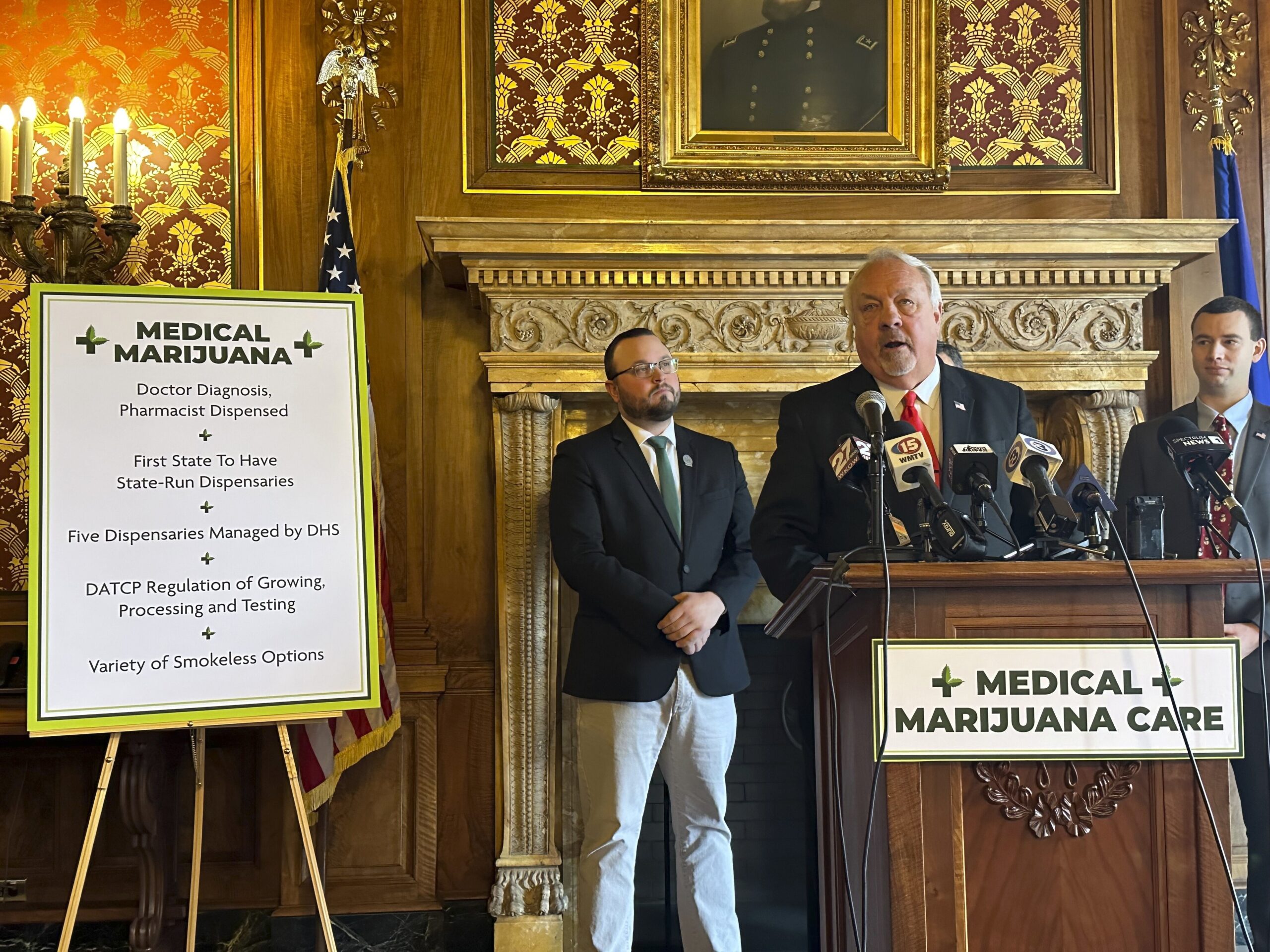A recent poll of state voters found nearly 60 percent of respondents believe marijuana should be legalized and regulated like alcohol. Our guest talks about shifting attitudes toward the drug and challenges of legalizing marijuana. We also talk to a former state attorney general about Wisconsin’s new ethics committee, and a new ruling complicates how the DNR regulates certain industries in the state.
Featured in this Show
-
Poll Shows A Shift In Wisconsin's Opinion On Legalizing Marijuana
Public opinion on marijuana usage is becoming more favorable in Wisconsin, according to the most recent Marquette University Law School poll.
Voters in the survey were asked, “When it comes to marijuana, some people think that the drug should be fully legalized and regulated like alcohol. Do you agree or disagree with that view?”
Of those polled, 59 percent agreed with legalizing pot, with 39 percent of people disagreeing. Even along party lines, the opinion seems to be moving in a more positive direction, with 42 percent of Republicans agreeing with the question and 68 percent of Democrats advocating for regulation of the drug.
The legalization of pot is still piecemeal throughout the U.S. Currently, only four states — Oregon, Colorado, Washington, and Alaska — have legal recreation marijuana use while nearly half of states allow the use of the drug for medicinal purposes.
Wisconsin isn’t one of them, but the shift in opinion has some advocates hopeful, including Jay Selthofner. He’s the treasurer and co-founder of Northern Wisconsin NORML, short for National Organization for the Reform of Marijuana Laws.
“I think it’s a positive step,” he said. “It shows that the times are changing and definitely gives the patients and providers in the medical market hope that we’ll at least see a medical marijuana law in Wisconsin shortly.”
Medical marijuana, in particular, has been a rallying cry from many advocates in the state and, of the four states bordering Wisconsin, only Iowa doesn’t have a medical marijuana law on the books. (Michigan, Minnesota, and Illinois all have laws protecting the use of medical marijuana)
Moreover, according to Selthofner, there has been some growing evidence that the regulation of marijuana in states where it’s approved for recreational or medical use has been beneficial. He cites tax revenue collected by states, as well as the reduced costs of prosecuting marijuana crimes.
But Selthofner warned that the first step to reaping possible benefits of marijuana in Wisconsin is to regulate its use effectively. He noted that there are still concerns and debates over how marijuana may affect people if they drive. But he said that the state can learn from other if it chooses to legalize or decriminalize marijuana.
“It is time though for Wisconsin to not only pull the data from these other states but to take the best of the best that these states have designed their laws in,” he said. “Pick and choose. And instead of just doing something, be a premier leader legislatively on the issue.”
-
County Judge Decision Complicates DNR Stance On Limiting Regulation Of CAFOs
A recent decision by a Dane County judge challenged the state Department of Natural Resources stance on how to regulate operations–like high-capacity wells and CAFOs. Wisconsin Public Radio reporter Danielle Kaeding joins us to talk about the news.
-
Marquette Law School Poll Shows A Majority Of Wisconsinites Want Marijuana To Be Legal
The latest Marquette Law School Poll shows 59 percent of respondents say they want marijuana to be fully legalized and regulated like alcohol, while 39 percent don’t agree with legalizing the drug. We talk to an advocate for legalized marijuana about these results and what it would look like to legalize pot in Wisconsin.
-
New Ethics Commission Chair Confident Partisan Politics Won't Get In The Way Of Clean Government
The newly appointed head of the state’s Ethics Commission says she’s confident the bipartisan agency replacing the Government Accountability Board can find common ground and be an effective force for clean government, despite her objections to the dissolving the GAB.
In the fall of 2015, the Republican-controlled state Legislature voted to terminate the GAB, a committee that consisted of retired judges. In its place, lawmakers created the Elections Commission and the Ethics Commission, both of which will be made up of an equal number of Democrats and Republicans.
Former Attorney General Peg Lautenschlager, a Democrat, was announced last week as the chair of the new Ethics Commission featuring three members of each party. It was decided a Democrat would head the commission after a “D” was drawn from a hat, Lautenschlager said.
“For some of us on the commission who did not like the way in which the GAB was resolved, I think it’s for us to try to make certain that citizens in the state of Wisconsin trust this Ethics Commission as being an appropriate enforcement agency for the things that come under our charge,” Lautenschlager said.
The commission’s purview and authority extends to oversight of lobbying and ethics, as well as review of campaign finance reports, a task that was previously handled by state election agencies.
Critics of the newly formed commissions have argued that politics will undoubtedly get in the way. But Lautenschlager said she’s been impressed by her fellow members and their commitment to finding common ground. In the few times they’ve met so far, disagreements haven’t fallen along party lines.
“I think all of us on the commission, Democrats and Republicans alike, have a strong desire to try to reach consensus and make decisions that will be in the best interest of clean and open government and in the best interest of the people of the state, and perhaps sometimes have to rise above partisan differences,” Lautenschlager said.
Effective and clean government is vital for citizens to trust the system and their elected officials, she said.
“The reality is whether or not you are a big government person or a small government person, or somebody in between or off on a different planet, the reality is that I think we all know that there are certain state services that need to be well-functioning in order to move forward as a state,” Lautenschlager said.
Episode Credits
- Rob Ferrett Host
- Veronica Rueckert Host
- Amanda Magnus Producer
- J. Carlisle Larsen Producer
- Jay Selthofner Guest
- Danielle Kaeding Guest
- Peg Lautenschlager Guest
Wisconsin Public Radio, © Copyright 2025, Board of Regents of the University of Wisconsin System and Wisconsin Educational Communications Board.




